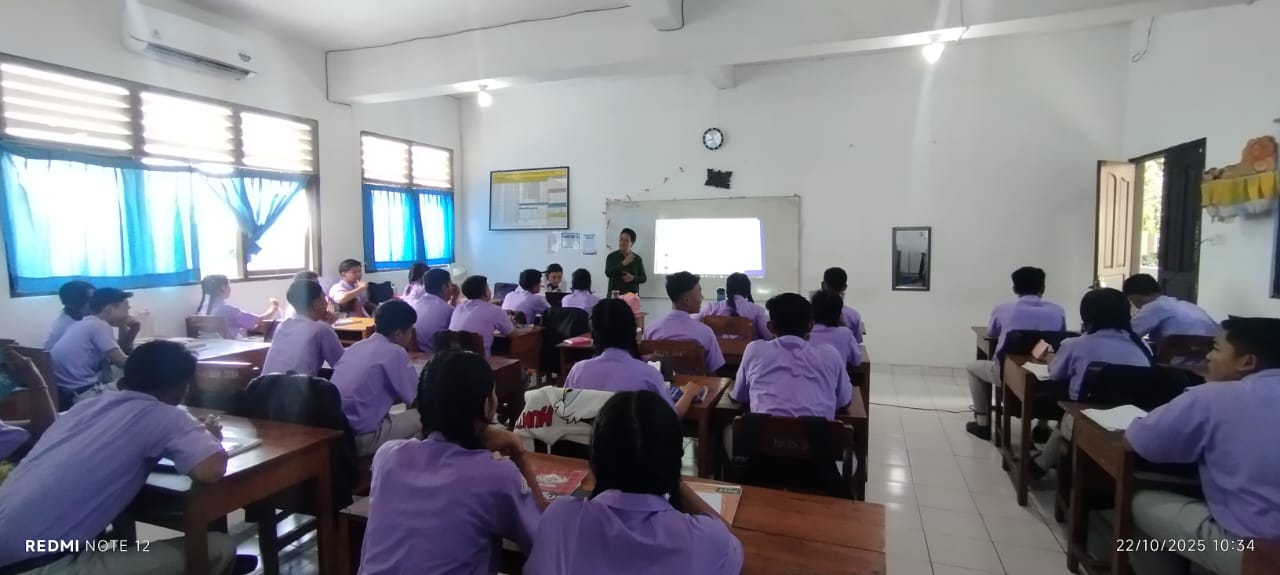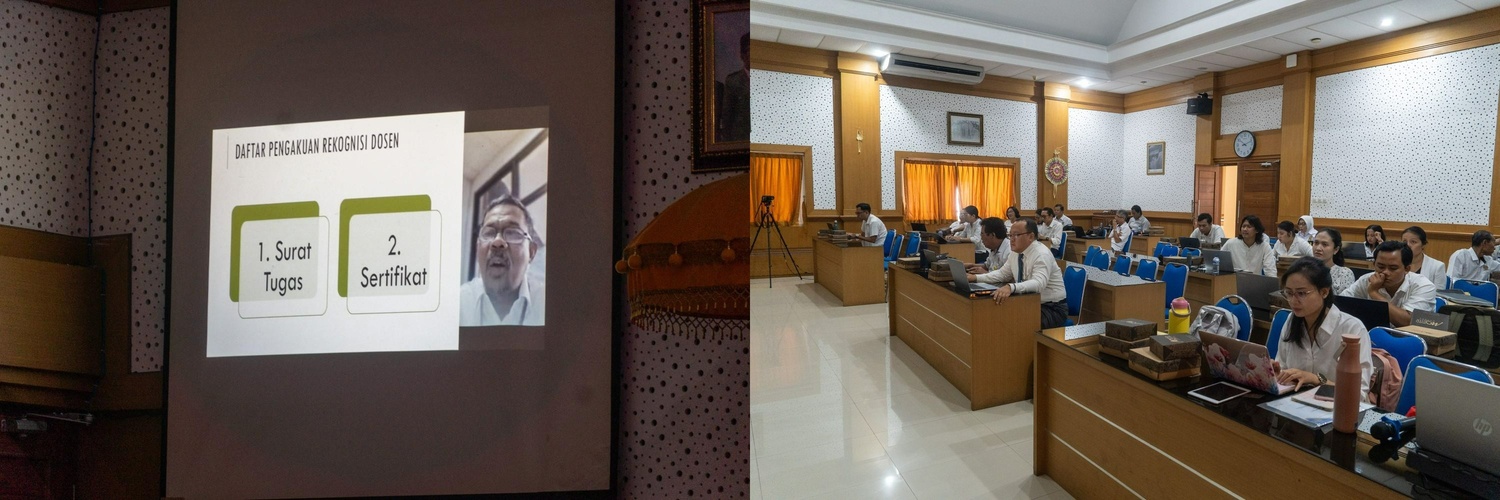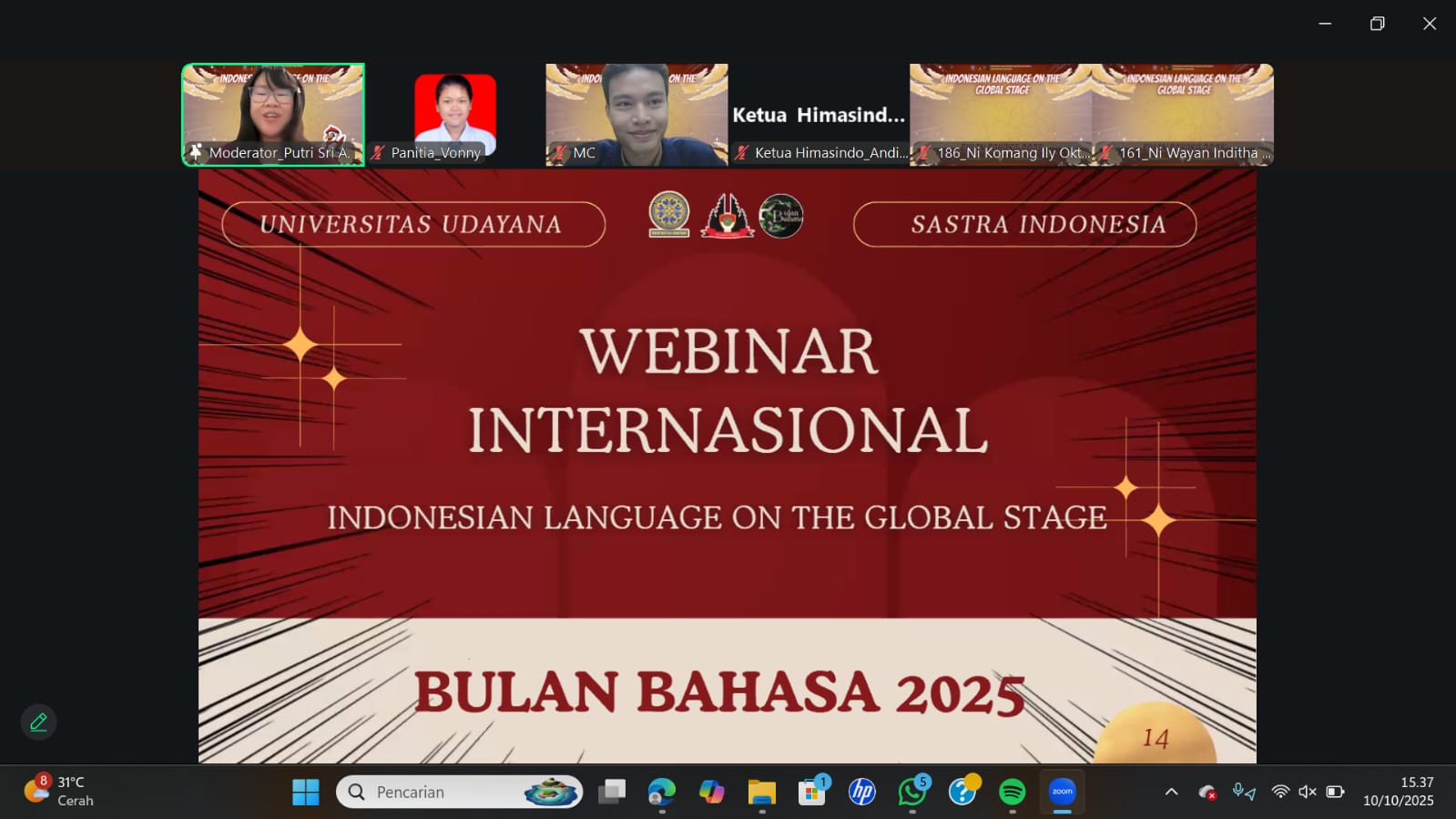Faculty of Humanities, Udayana University held a Community Service Program at SMK Werdhi Sila Kumara
In the realization of the three pillars of higher education, the Faculty of Humanities held a Community Service Program. The community service activity was held on Wednesday, October 22, 2025, at SMK Werdhi Sila Kumara, Silakarang, Gianyar. The community service team consists of lecturers and staff from the Faculty of Humanities. This activity is a concrete manifestation of the Faculty of Humanities at Udayana University's commitment to supporting the application of Linguistics in the vocational education sector. In order to strengthen the connection between the academic world and society, this activity also emphasized the active role of the Faculty of Humanities at Udayana University in fostering cultural literacy among the younger generation.
The arrival of the community service team was warmly received with a sense of comfort and familiarity. Next, the community service team was invited to conduct community service in the designated classes. The team was divided into two groups, one entering the hospitality department and the other the visual communication design department. Although the fields of study presented were different from the community service location, each community service team appeared comfortable in delivering the community service material provided in accordance with their respective academic backgrounds. The activity was interactive, with students enthusiastically participating in the sessions. This program also opened opportunities for further collaboration between SMK Werdhi Sila Kumara and the Faculty of Humanities at Udayana University in the field of education development based on local wisdom.
The Bachelor of History, which was assigned to present in the Hospitality section presented material related to the history of everyday life. This material also addresses the complaints of students, most of whom are experienced being bored with the history material taught. The service material provided gives them a new perspective that history is also inseparable from their daily lives. Silakarang carvers, one of the icons of Silakarang mentioned in the discussion of the material. The presenter emphasized how historical knowledge is something that should not be ignored in the world of tourism. This contextual approach demonstrates how historical knowledge can be practically applied in the creative industry and local tourism sectors. In addition to expanding knowledge, this activity also strengthens the role of the Bachelor of History at Faculty of Humanities, Udayana University as a cultural-based education initiator in Bali.
The interesting parts are the materials presented by other study programs, such as Bachelor of Balinese Literature, which attempts to remind students of the importance of Balinese language skills. The same thing is done by the Bachelor of English Literature, Bachelor of Japanese Literature, Bachelor of Indonesian Literature, and Bachelor of Old Javanese Literature, which emphasize materials on language skills. Meanwhile, young lecturers from the Bachelor of Anthropology and Archaeology presented a different package of community service materials. They try to arouse students' interest in observing cultural phenomena more carefully and show how exciting it is to explore cultural research. Through a multidisciplinary approach, FIB Unud continues to strive to provide community service that is relevant, inspiring, and has a positive impact on the world of education.
Obviously, all community service activities at SMK Werdhi Sila Kumara are in line with the direction of Prof. Dr. I Made Netra, S.S., M.Hum. as the head of the Research and Community Service Unit (UP2M) of the Faculty of Humanities, Udayana University. Hopefully, these community service activities will provide enlightenment and introduce the existence of the Faculty of Humanities at Udayana University. Through community service programs such as this, Faculty of Humanities at Udayana University continues to strengthen its role as an educational institution oriented towards the development of science, culture, and humanity. This activity is expected to inspire other educational institutions to contribute to improving the quality of learning and preserving local cultural values.




UDAYANA UNIVERSITY